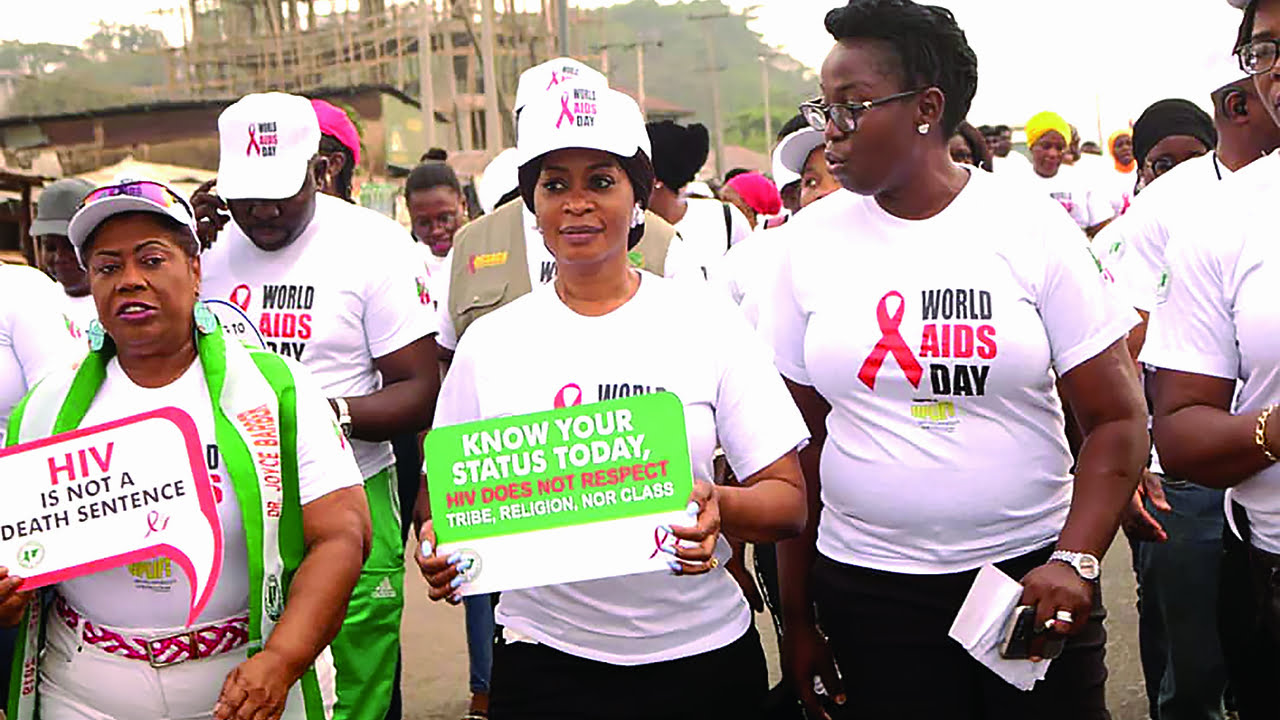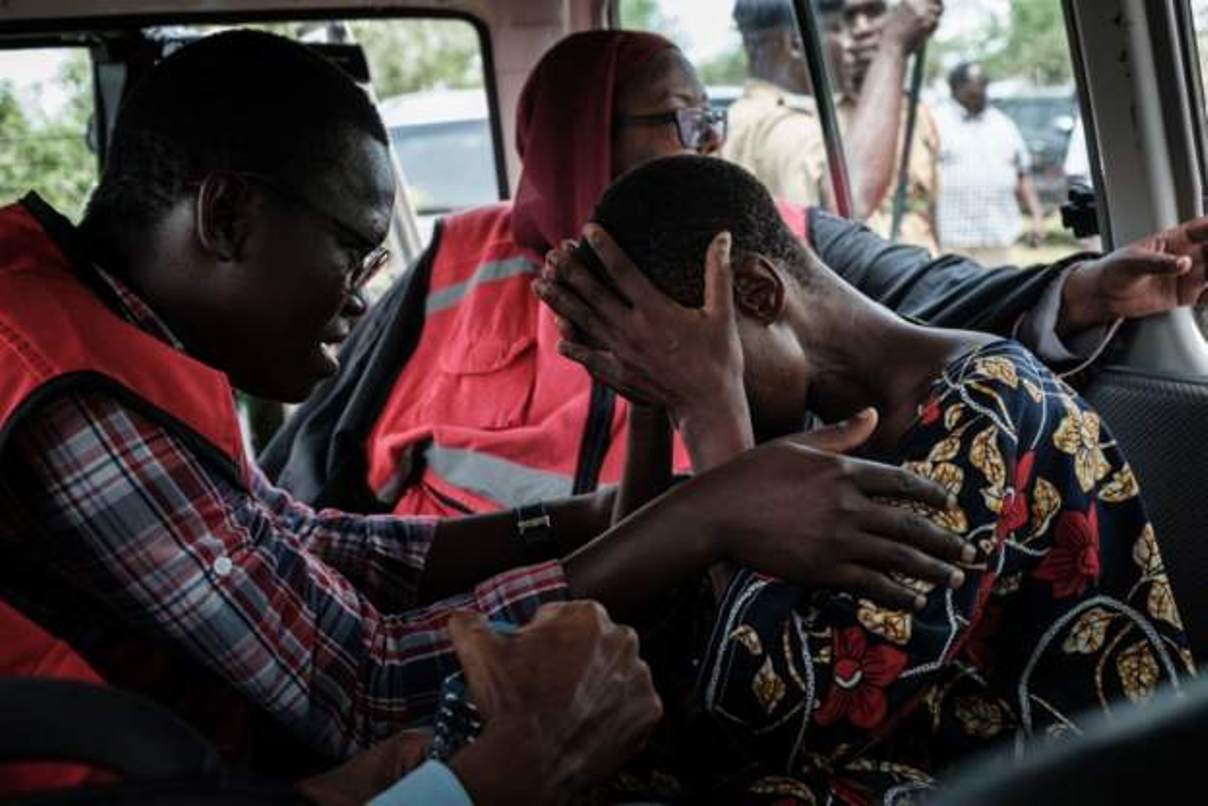As the world yesterday marked the 2018 World AIDS Day, the Federal Government has been urged to put an immediate end to the payment of user fee charged people living with HIV by treatment facilities across the country.
Championing the call is Civil Society For HIV/AIDS in Nigeria (CISHAN), which stressed that its continuance has the inherent danger of negating the right of citizens access to treatment and care.
Still as part of the celebration, there were calls for self-testing and increased efforts to reach the 9.4 million people that are living with the virus around the world, but who unaware of their status, as well as, the 19.4 million people who do not have suppressed viral loads.
Despite advancement in scientific understanding of the virus, its prevention and treatment, as well as, years of significant efforts by the global health community and leading government and civil society organisations, too many people living with HIV, or at risk of it still do not have access to prevention, care, and treatment of the malaise, which still has no cure.
The vast majority of people living with HIV are in low- and middle-income countries.
About 19.6 million people living with HIV (53%) are in eastern and southern Africa, 6.1 million (16%) in western and central Africa, 5.2 million (14%) in Asia and the Pacific, and 2.2 million (6%) in Western and Central Europe and North America in 2017.
Nigeria has the second largest HIV epidemic in the world, and according to recent data from the Nigerian National HIV/AIDS Strategic Framework, which was quoted by the Deputy Director Research, Nigeria Institute of Medical Research (NIMR), Dr. Oliver Ezechi, nearly 32 per cent of the general population living with the virus are unaware of their status. Among young people, only about a quarter know their status.
Although, HIV prevalence among Nigerian adults is much less (2.8%) than other sub-Saharan African countries such as South Africa (18.8%) and Zambia (11.5%), the size of Nigeria’s population shows that 3.1 million people were living with HIV in 2017.
Furthermore, it is estimated that around two-thirds of new HIV infections in West and Central Africa in 2017 occur in Nigeria.
Together with South Africa and Uganda, the country accounts for around half of all new HIV infections in sub-Saharan Africa every year, despite achieving a five-point reduction in new infections between 2010 and 2017.
Six states in the country account for about 41 per cent of people living with HIV. They are Kaduna, Akwa Ibom, Benue, Lagos, Oyo, and Kano. HIV prevalence is highest in South South states and it stands at 5.5 per cent.
Although, it is lowest in the South East zone, where there is a prevalence of 1.8 per cent, there are higher rates of HIV in rural areas by four per cent than in urban area, which prevalence is three per cent.
However, to help the country keep up with the 2030 Sustainable Development Goal 3 of achieving a free HIV/AIDS Nigeria, state governments are stepping up efforts to promote self-testing among people, just as the fear of stigmatisation has remained the major cause of the missing HIV cases.
Also, the National Institute of Health (NIH), which represents the largest public investment in HIV/AIDS research in the world, engaged in research around the globe to understand, diagnose, treat, and prevent HIV infection and its many associated conditions, and to find a cure, has brought it HIV self testing project to Nigeria to enable every individual test his/herself without fear of the unknown, especially among the youths.
The Advocacy Lead, Lagos State AIDs Control Agency, Dr. Sule Omolola, said Lagos State is at the moment looking at the 90-90-90 initiative, adding that the statistics has achieved 43.2 per cent in getting those with the HIV to come for testing to know their status.
“The first 90 now, we are at 43.2 per cent. Within last year and now, we have been able to take HIV testing to about 20 million people in Lagos State, and some positive people have been linked to care, a development that will also help to improve the second 90, which means that 90 per cent of those who know their status are actually linked to care,”
She said: “The second 90, which means that those with GIV should access care, Nigeria has not gotten there but will achieve it, which is why we are collaborating with the University of North Carolina for the I-Test project.
“The youths have been left out in a lot of HIV programming, and now, by the time that we are inculcating youths in what we are doing, I am sure it will help to boost the first 90, which we are achieving and we are on the road to achieving the second and then third 90 initiative.”
Ezechi further said that NIMR is working to ensure that the self testing project is achieved in Nigeria to reduce the incidence of HIV by 2030.
Speaking at a free HIV/AIDS screening exercise in Lagos, at the behest of Saint Louis University, Missouri, United States and NIMR, and funded by Eunice Shriver National Institute of Children Health and Human Development USA, Prof. Juliet Iwelunmor said youth-friendly self-testing remains the best approach to avoid stigmatisation among patients.
She said: “We are focusing on youths because in Nigeria one out of five youths never get tested because of fear, low perception, stigmatisation, discrimination and lack of access to health screening. Therefore, we are going to provide youth friendly self-testing HIV/AIDS kits to enable them to get tested.”
At a press conference organised in Lokoja, incollaboration with Network of People Living With HIV/AIDS in Nigeria (NEPWHAN), to mark the event, which theme this “Know Your Status,” Kogi State Coordinator of CISHAN Mr. Hamza Aliyu, said, “Since 2015 we have continued to demand for the removal of all forms of user fees by treatment facilities.
“We have consistently shown how the institution of user fees negate the rights of individuals living with HIV to access treatment and care. In 2017, PEPFAR had discouraged the user fees because of its impact on reducing access of people living with HIV’s access to treatment,” he said.
CISHAN also called for government to sustenain HIV/AIDS programmes currently being supported by donor agencies by providing budgetary allocations and treatment support facilities stressing, “This is not a plea but a demand.” In Jos, Plateau State, Chairman of Nigerian Medical Association (NMA) Dr. Dajel Titus Bulus, said that HIV/AIDS was still prevalent in the state standing around 5.9 per cent.
He said that based on the population of the state, which is about 3.5 million, about 185,000 people are living with HIV/AIDS.
“Even though the incidence of HIV/AIDS in Plateau State though is reducing, we know that violent conflicts across the state is contributing to its spread. In 2010, when we had ethno-religious violence in the state, the incident rose to 7.7 per cent and this dropped to 5.8 per cent, but we are still making a passionate appeal to government to ensure that there is peace and security in the state.
“This is because when we have violence and people are displaced, when they move into camps, a lot of activities take place including unprotected sexual intercourse. That fuels the spread of HIV/AIDs. Apart from that, those who are on antiretroviral drugs for HIV, when there is violence, they are unable to access their care appropriately. Therefore they go back to develop very high viral norms and that increases the spread of HIV/Aids in the state.”
He also blamed the movement of security agents from one place to another as a contributory factor to the spread of HIV in the state.
-GUARDIAN-






2 Comments